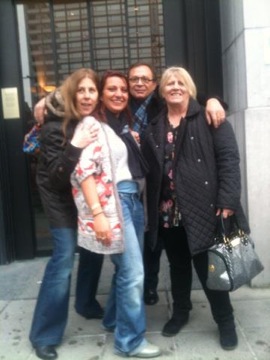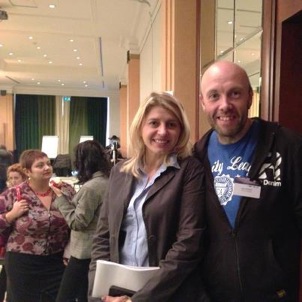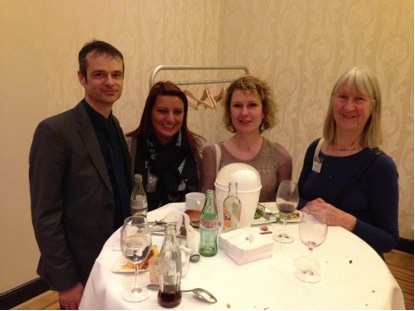For some time a number of local authorities and other public bodies have recognised the value of employing people from Gypsy and Traveller backgrounds. The idea is to break down barriers and improve trust between official institutions and the people that they are here to serve. There are teachers and teaching assistants, home school liaison officers, youth workers, police officers, health workers, adult basic skills workers and social workers, often working with the whole population, and with a specific remit to promote the inclusion of their own communities. More recently schools, police forces, fire services and councils have recruited Roma from Eastern Europe to carry out similar roles. With the reduction in local authority budgets, voluntary sector organisations have increasingly developed an advocacy and liaison role. Some of these organisations are community led and their staff are often called upon to intervene in order to improve relations with service providers.
The Council of Europe, with funding from the European Union, has developed a training programme that has been designed for community members whose work, either paid or voluntary, involves them in some way in intercultural mediation. This programme is called ROMED. By participating in seven days of training with Council of Europe trainers and completing a six month work based assignment participants can gain the ROMED certificate.
The ROMED training is highly participative with much group work, role play and discussion as well as some theory. Topics covered include stereotyping, prejudice, discrimination, dealing with critical incidents, human rights, conflict management, assessment, planning, evaluations and the European Code of Ethics for Roma mediators. The intention of the training is to equip the trainees to act impartially to help develop the confidence of public institutions and community members in liaising directly with one another. This in turn will help to improve fair access to services and participation by everyone on a more equal footing.
The UK government agreed to join the ROMED training programme in 2012. The course has run twice now with ACERT (the Advisory Council for the Education of Romany and other Travellers) acting as the UK National Focal Point, responsible for organising the training courses , recruiting and supporting the trainees and reporting back to the Council of Europe. So far 35 UK based trainees have been awarded the ROMED certificate. This group includes people from a wide range of Traveller, Gypsy and Roma backgrounds who are living and working in England, Wales, Scotland and Northern Ireland. A number of the participants from the first course supported those in the second cohort, two of them acting as co-trainers.
ACERT will circulate enquiries from organisations and local authorities seeking to use the services of a ROMED trained mediator. We would also be willing to support local authorities seeking to organise intercultural mediator training for people from their local communities.
For further information contact

 The first Congress of Roma mediators from the Council of Europe/European Commission ROMED programme took place at the Crowne Plaza Hotel. As well as Roma mediators and trainers from several different countries, participants at the event included EU Commissioner Androulla Vassiliou and the Special Representative of the Council of Europe Secretary General for Roma issues, Jeroen Schokkenbroek. A message from the Council of Europe Secretary General was transmitted by video and is available on line.
The first Congress of Roma mediators from the Council of Europe/European Commission ROMED programme took place at the Crowne Plaza Hotel. As well as Roma mediators and trainers from several different countries, participants at the event included EU Commissioner Androulla Vassiliou and the Special Representative of the Council of Europe Secretary General for Roma issues, Jeroen Schokkenbroek. A message from the Council of Europe Secretary General was transmitted by video and is available on line. 

